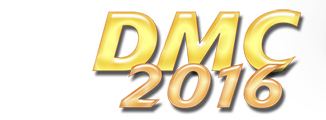



Abstracts (200-500 word summary) submittals will be accepted for the following topics. Topic Areas for consideration are: (ABSTRACTS MUST BE UNCLASSIFIED, PUBLIC RELEASABLE, AND NON-PROPRIETARY)
The ManTech Advanced Manufacturing Enterprise subpanel is requesting abstracts for presentations to be given at DMC 2016. Presentations should be no longer than 30 minutes including time for speaker introduction and questions. The topic for the AME sessions will be the Digital Quilt. Each session will focus on one of four topics; Design, Manufacturing, Analysis/Simulation, and the DMDII. The abstract should address the role the digital quilt takes in the topic. Abstracts that showcase successful implementations of the model based definition to improve design, manufacturing, and engineering are also welcome. Please limit the length of the abstract to 300 words.
The Electronics Processing and Fabrication Subpanel requests abstracts on key electronics issues and solutions directly related to current defense-related manufacturing activities. In addition current ongoing Manufacturing Technology programs funded by DoD or its departments are encouraged to submit abstracts that show the accomplishments and the Warfighter impacts of their programs. The combined effect of military budget constraints, rapid changes in electronics technology, and the need to deliver superior and affordable weapons to our Warfighters continues to challenge the defense manufacturing community. Compounding the technology challenge is the requirement to sustain many of our existing weapon systems well beyond their original lifetimes. Papers are sought that address the challenges and offer innovative manufacturing technology solutions that will keep our Warfighters second-to-none on any battlefield. Suggested topics of selected interest include but are not limited to:
Selection criteria will include relevance to Warfighter needs. Other topics of interest will also be considered. Selected papers may be used to introduce and support interactive panel discussions or be recommended for poster presentations.
Presentations within the Metals track will highlight projects that reduce cost and cycle time, improve manufacturing capability, and increase performance or producibility of metals, with special emphasis to projects funded through the DoD ManTech, RIF and IBIF programs. Topics of interest to the Metals Processing and Fabrication Subpanel include:
PhD Candidate Presentations
DMC will host PhD Candidate Presentations to encourage academic participating in the defense manufacturing technology arena. The Manufacturing Institutes are encouraged to contact their academic partners to identify PhD Candidates interested in presenting their research at DMC. There will be six, thirty-minute sessions available for PhD Candidates to present their material and answer questions from the audience. DMC participants, many of whom are experts in their respective fields, are available and encouraged to engage PhD Candidates on their research.
Poster Sessions
DMC will host a poster session during the conference to provide opportunities for young thinkers in the industry to showcase successes either from an academic or a professional perspective. Session participants will derive from a variety of sources:
Questions concerning Abstracts should be directed to the DMC '16 .
| Critical Dates | Close/Date |
|---|---|
| Abstract Submission | August 1, 2016 |
| Abstract Notification for Acceptance/Denial | September 9, 2016 |
| Presentation Due to UTC | November 7, 2016 |
If your abstract is selected for presentation at DMC '16, you will be requested to submit presentation materials to UTC in electronic format no later than November 7, 2016. Upon acceptance of your abstract, specific instructions for technical preparation will be provided.